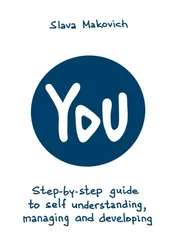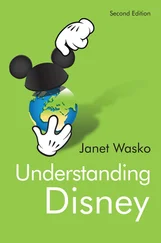Perhaps its most abiding significance is the extent to which some of our largest immigrant groups come from Commonwealth countries, notably India, Pakistan, Bangladesh and the West Indies. These are the countries with which we play cricket! The ties of Empire and sport have been converted into the ties of citizenship. Ironically, one of the countries which did not become part of the Commonwealth but which Britain controlled for many years between the world wars was Iraq. Among the reasons why the British joined in the occupation of Iraq with the USA, one of the most confused was a recognition that we might somehow be partly responsible for the situation there - as we are not responsible, for example, for Cambodia or Chile. The Commonwealth has virtually no political power but it represents for its member states a kind of family, the oddities of connections from long ago that still, perhaps, mean something. In this sense it is rather like your future 'near abroad' several generations after the collapse of the Soviet Union.
The United States of America: A special relationship?
After the Second World War, British politicians often spoke about our 'special relationship' with the United States of America. 'Britain stood alone against the Fascist powers,' they declared, 'until our solitary stand was supported first with economic aid and then with military force by the USA.' Together we had beaten the enemy! Our politicians argued that America and Britain stood together as special allies, surveying the wreckage of Europe and working together to forge a new world order. Both historically and politically this version of events is hardly accurate! In 1940 Britain did 'stand alone', and those months of crisis and of the Battle of Britain which was fought in the skies above southern Britain are now part of a great legend, celebrated in books, films and songs. At that stage the Soviet Union was still in secret alliance with Nazi Germany. Not until the summer of 1941 did Soviet forces turn against the invading Germany armies, thereby taking some of the pressure off Britain.
Because of events after the war, the essential role of the Soviet Union in defeating Nazi Germany was played down, and - in America if not in Britain - half forgotten, as the Second World War merged into the Cold War. In the ensuing confrontation of super-powers, British politicians were eager to show that we were a loyal and indispensable ally of the United States through ties of language, history and culture. Most analysts do not think that American politicians believed in this special relationship, but the concept was revived in the 1980s when Ronald Reagan and our Prime Minister, Margaret Thatcher, developed a personal admiration for each other.
The relationship between George W. Bush and our Prime Minister, Tony Blair from 2001 was undoubtedly close, much to the horror of many British people. Millions objected to our support for the American occupation of Iraq; the vast majority of people with higher education were against the occupation and were ready to argue that we had become not allies but slaves to American policies. But by then the government and many of our citizens were preoccupied by the idea that there was some kind of 'Muslim terrorist menace' which justified the occupation.
What does the United State of America mean to ordinary British citizens? Some people feel deeply attached to that country across the Atlantic. Sharing similar, if not identical, languages means a great deal for tourism and personal friendships. Many British families have American friends in a way in which they do not have Italian or German or even French friends, because a shared language is so helpful and because Americans are so friendly. 'Of course we are close,' such people will point out. Americans are never described as foreigners.'
Others fear that we have been 'swamped' by America politics and culture. They point to our involvement in the Middle East at American's behest. They evoke the mixture of bemusement and horror with which British soldiers, trained in a different tradition, watch the behaviour of American soldiers. They complain about the poor quality of films and TV programmes which come out of America (although these seem to be welcomed by most of the British.) They shudder at American neo-conservatives and evangelical Christians who operate in cultural worlds which are quite unfamiliar to us.
As for the young - teenagers and those in their early twenties -for them America is part of their world: the part that made computers and provides them with music, TV, rhythms, moods, attitudes, almost without their noticing. The open question is how far they will retain this acceptance of American culture as their culture, and how far, as they grow up, they will differentiate between Britain, their own country, and America, that cultural space which they can claim. For various reasons I discuss below, I think America will not and cannot 'take over' Britain culturally. The British who really want to become American will move to America.
The European Union
Britain has been part of the European Union, and taken part in its development from an economic community to a complex political organisation for more than thirty years. Yet the British still feel ambivalent about 'Europe' (meaning not the continent of Europe but the EU.) We do not belong to the 'eurozone' so we have to buy euros whenever we cross the English Channel by sea, by plane or by rail tunnel; we treat many EU regulations with suspicion; we like to think that we are independent and 'do things differently here'. It is possible, though our politicians have carefully avoided putting it to the vote, that a majority of us would prefer to leave the EU if Britain could do so. Nobody quite knows, because the reality is that we are members and will remain members. Grumbling about the reality is different from really wanting to change it.
In fact the European Union has had great influence upon our daily life, our culture and our expectations. For example laws about working conditions and safety conditions, approval of medical treatments, regulations about food (what can be grown, imported and eaten) and transport are all part of European law which has been absorbed into domestic law. Like other countries within the Union we can and do sometimes reject efforts at universal European participation. As Russians know, a Schengen visa which is valid for most parts of Europe is not valid for Britain. Much fuss was made when the kilo was introduced as a standard measure for weight. 'Why can we not keep our traditional British pounds and ounces?!!' outraged shopkeepers exclaimed. In fact there was nothing to stop us using both; shopkeepers do use both, and the kilo has, quite quickly, become part of our shopping vocabulary.
Two major effects of our being members of the European Union are that we are more closely tied to the 'social democratic' model of welfare than we might have been; and that free movement of labour has meant a huge immigration (possibly temporary) of other Europeans, mostly Poles, into our country.
European countries have always been concerned about social welfare: child benefits, pensions, unemployment pay and the rest. In some cases we have led the world; our NHS is a good example. In other cases, for example free and good childcare for working parents, British efforts have lagged behind the provision made in most European countries. (Now we have more-or-less caught up.) Legally, too, the European Union has certain clear views on human rights. No death penalty; proper work legislation; equal rights for all citizens irrespective of their ethnic or 'national' status; a European Parliament that is secular in outlook and does not bring God into the constitution. Some of these laws were already part of the British legislative framework before we joined the EU. Some we have become used to as Britain and the EU have grown up into the contemporary world. They are ways of understanding life and thinking about our culture to which British people are accustomed. Not everyone agrees with them of course. There are still many British people who would like to bring back the death penalty. But that is not going to happen, and I suspect they would feel very uncomfortable if it did happen. Britain has been for too long involved with the slow, painful, civilising process which took place in Europe after the Second World War - a war in which we had all together managed to destroy so much European civilisation. So, over the decades, our institutions have been influenced by EU institutions, and much of the money we receive for our communities comes from EU grants. Even the sceptics feel that if this is part of our political and economic world, then we want a major voice in it. (Many British politicians are convinced and energetic 'Europeans'. So are the majority - though certainly not all - of our educated classes.)
Читать дальше












